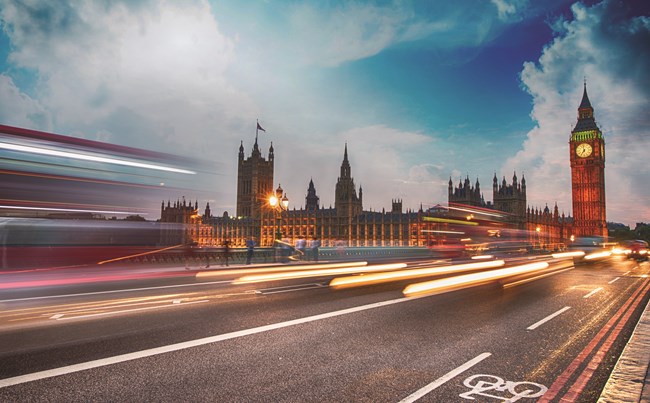
The start point for the best source of fleet information |
'Keep business journeys simple', policymakers told
Date: 30 April 2019 | Author: Sean Keywood

Plans for the future of mobility in UK towns and cities will see fleets facing challenges around maintaining flexibility in business transport, it has been said.
The government has published the Future of Mobility Urban Strategy, which it says is designed to take advantage of developing technologies such as electric vehicles (EVs), self-driving cars, and advances in data production and use.
It sets out several principles for urban mobility, including that new mobility services must lead the transition to zero emissions transport, and that innovation must help to reduce congestion.
It also says new mobility services must be designed to operate as part of an integrated transport system, be safe and secure, and be available in all areas of the UK and to all segments of society.
The government plans to review micromobility vehicles, mobility as a service (MAAS), transport data, and legislation for buses, taxis and private hire vehicles.
It also plans more support for industry and local leaders, including the establishment of up to four Future Mobility Zones to trial new mobility services, combining new and traditional modes of transport.
Transport minister Jesse Norman said: "If they are properly managed, the transport technologies of the future will not just make journeys faster. They will also make them safer, easier, more comfortable and more affordable.
"They will make our towns and cities quieter and less polluted. And they will give us the option to see mobility as a service, integrated and accessible to all."
Reacting to the strategy, fleet software firm Fleetcheck said it was important to keep business journeys as simple and effective as possible.
Managing director Peter Golding said: "We fully support the ultimate aims of the government in improving air quality, reducing carbon emissions, cutting congestion and making cities more pedestrian-friendly.
"However, we must not lose sight of the fact that the success of fleets in underpinning business comes from their sheer usability.
"You can get into a car or load a van and drive straight to your destination. This is especially true of multi-stop journeys."
Golding said that, ultimately, anything that undermined this needed to be treated with extreme caution.
He added: "While fleets must play their part in the future of mobility and meeting the government's environmental and social aims, we must also work to ensure that businesses continue to enjoy the benefits of flexibility as much
as possible."
Golding said that while this did not mean fleets shouldn't be positive about mobility strategies, everyday fleet journeys would not be easily replaced.
He said: "It needs to be recognised that many multi-stop journeys, such as a sales person in a car visiting three locations in a day, or a technician in a van servicing a dozen different sites, simply cannot be displaced by any other transport method.
"The cars and vans used for those applications will change over the next few years and we have great hopes for the ultimate level of adoption by fleets when it comes to EVs, but those journeys require one vehicle and one driver."
Golding also said there needed to be more detail about some of the ideas in the strategy, arguing that many of them appeared to already be operating to some extent, if not in all parts of the country.
However, he concluded that Fleetcheck looked forward to seeing how the strategy would play out in the real world, and to working with the government and its customers to reduce the impact of business transport over the coming decades.
A more wholly positive reaction to the strategy came from the BVRLA, which said the vehicle rental, car club and leasing sector would play a key role in realising the potential of connected, shared, autonomous and electric vehicles.
BVRLA director of external communications Toby Poston said: "BVRLA members are already delivering the future of urban mobility by providing clean, flexible and affordable mobility to local businesses and residents in London, Birmingham, Manchester, and every other major town and city across the UK.
"Their services integrate with other modes of transport and can play a vital role in tackling the challenges facing urban policymakers, whether it is reducing congestion and the threat of terrorism or improving air quality or road safety."
On the same day the government's strategy came out, the BVRLA published its own policy paper on its proposed Mobility Credits Scrappage Scheme.
This calls for people to be offered mobility credits, which could be used on vehicle hire or public transport, in exchange for scrapping older, more polluting vehicles.
The BVRLA argues this would reduce emissions and congestion, and could be used in conjunction with new technologies such as integrated MAAS platforms to incentivise more sustainable journeys.










